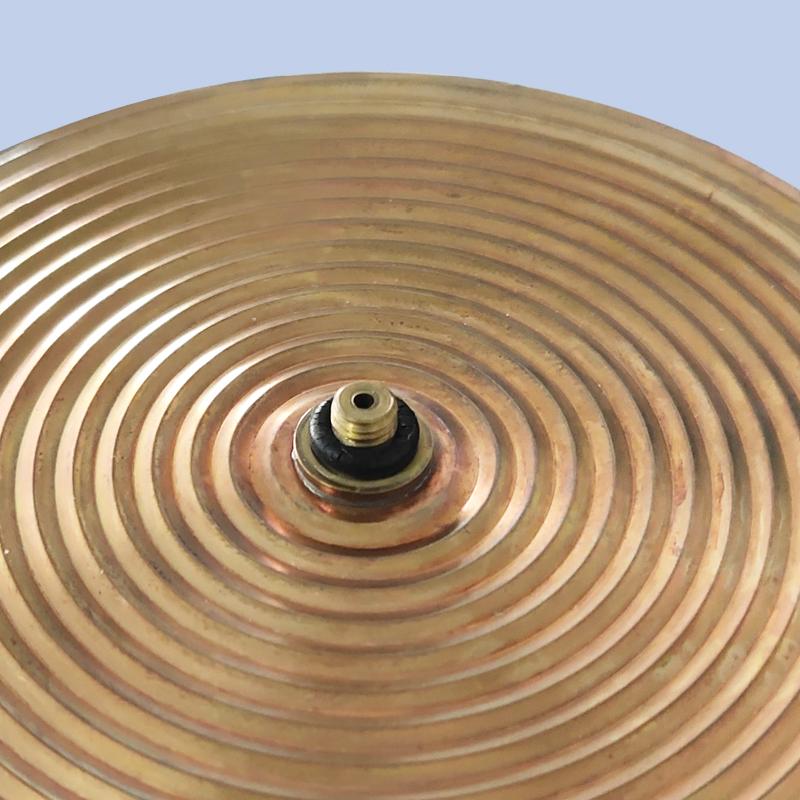
Oct . 20, 2024 12:30 Back to list
custom differential pressure gauge water
Understanding Custom Differential Pressure Gauges for Water Applications
In various industrial and commercial settings, accurate measurement of pressure differences is crucial for the safe and efficient operation of systems. Among the various tools available for this purpose, custom differential pressure gauges have emerged as an essential choice for applications involving water. These gauges not only provide precise measurements but also cater to the specific requirements of different operations.
What is a Differential Pressure Gauge?
A differential pressure gauge is an instrument used to measure the difference in pressure between two points in a system. The functionality of this gauge is pivotal, especially where fluid dynamics play a significant role, such as in water treatment plants, HVAC systems, and various manufacturing processes. The gauge typically displays the pressure difference in units such as PSI (pounds per square inch), bar, or pascals.
Importance of Customization
The standard differential pressure gauges may not always meet the unique demands of every application; thus, custom solutions are often necessary. Custom differential pressure gauges can be designed to accommodate specific environmental conditions, fluid types, and operational parameters. Factors driving customization include
1. Fluid Characteristics The properties of the fluid, especially for water applications, can vary significantly. For instance, water used in a chemical process may contain contaminants that require special materials and design features to prevent corrosion or blockage.
2. Temperature and Pressure Ranges Different systems may operate under varying temperatures and pressures. Custom gauges can be calibrated to operate optimally within these parameters, ensuring reliability and accuracy.
3. Mounting and Sizing Requirements Space constraints are common in industrial environments. Customized sizes and mounting options can ensure that the differential pressure gauge fits seamlessly into existing systems without compromising functionality.
4. Desired Output and Communication Protocols Modern industrial environments increasingly rely on automation and data integration. Custom gauges can be equipped with advanced output features (such as digital readouts, analog signals, or digital communications protocols) that allow for real-time data collection and monitoring.
Applications of Custom Differential Pressure Gauges
Differential pressure gauges that are customized for water applications can be found in several key areas
custom differential pressure gauge water

1. Water Treatment Facilities These facilities often require precise monitoring of filtration systems, where maintaining optimal pressure differences is critical to ensuring water quality. Custom gauges help to monitor pressure drops across filters, thereby indicating when maintenance or replacements are needed.
2. HVAC Systems In heating, ventilation, and air conditioning (HVAC) systems, maintaining proper airflow and pressure balances is vital for energy efficiency and comfort. Custom differential pressure gauges can monitor water pressure in chilled or hot water systems to ensure consistent performance.
3. Pipelines For water distribution and effluent transport pipelines, measuring the pressure differential between upstream and downstream points assists in identifying blockages or leaks. Custom gauges can be strategically placed to provide accurate readings in various pipeline environments.
4. Cooling Systems Many industrial applications involve cooling systems that use water as a coolant. Differential pressure gauges help monitor the pressure difference in cooling towers, ensuring optimal operation and reduced energy consumption.
Choosing the Right Custom Differential Pressure Gauge
Selecting the right gauge involves careful consideration of several factors
- Material Compatibility Ensure that the gauge materials are compatible with the specific type of water being measured, whether it is potable water or industrial wastewater. - Accuracy and Range Determine the required accuracy and the range of pressure measurements needed for your application.
- Calibration and Maintenance Understand the calibration needs and maintenance practices for the differential pressure gauge to ensure longevity and reliability.
- Supplier Expertise Partnering with a manufacturer that has experience in custom solutions can make a significant difference. They can provide insights and recommendations tailored to your requirements.
Conclusion
Custom differential pressure gauges designed for water applications offer invaluable benefits in accuracy and efficiency across diverse industries. By understanding the unique challenges of each application and utilizing customized solutions, businesses can enhance their operational reliability and optimize their systems. Investing in the right differential pressure gauge not only ensures precise measurements but also promotes safety and efficient resource management.
-
High-Precision 5 Valve Manifold Differential Pressure Gauge Suppliers
NewsApr.29,2025
-
High-Precision Diaphragm Vacuum Pressure Gauges Manufacturers & Quotes
NewsApr.29,2025
-
Omega Differential Pressure Gauges High Accuracy & Durability
NewsApr.28,2025
-
Low Pressure Differential Pressure Gauges Precision Solutions & Quotes
NewsApr.28,2025
-
Digital Diaphragm Pressure Gaauge Precision Measurement & OEM Quotes
NewsApr.28,2025
-
Differential Pressure Gauge China Price High-Accuracy & Best Quotes
NewsApr.28,2025
